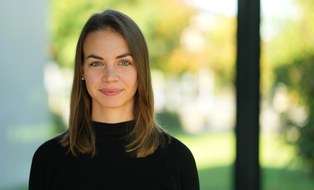fluidIGU
| Project-Title | fluidIGU |
| Project-Subtitle | Developing an edge seal system for fluid-filled, multi-layered insulating glazing |
| Project director | Prof. Dr.-Ing. Bernhard Weller |
| Researcher | Dipl.-Ing. Alina Joachim |
| Partner | B + G Ingenieure Bollinger und Grohmann GmbH ADCO Technik GmbH |
| Funding |
BMWi – Zentrales Innovationsprogramm Mittelstand (ZIM) |
| Time Span | 2019-2021 |
Project Description
As concerns for the environment grow, so does the demand for low-energy housing. On the flip side, there is also an increasing tendency to request open-plan buildings with plenty of glazing to make optimal use of natural light. The large glass spaces this involves will lead to increased heat loss in winter, or an increased energy input in summer, despite the use of insulating glazing.
Various national and international research projects have therefore worked on developing fluid-filled glazing elements that can be used to help keep the interior climate constant. The fluidIGU project touches upon previously completed EU research projects, in which fluid-filled, multi-layered insulating glazing was tested. The new multi-layered insulating glazing with fluid filling the space between the individual panes is to be used in adaptive facade systems to control the solar gain and to minimise the overall energy consumption of the building. There are no optical differences between this glazing and conventional insulating glazing. Using specially developed separators, the fluid is moved through the glazing in a constant cycle and its temperature is regulated. However, component testing has shown that although the separator developed for this purpose fulfils its function, the glazing element would begin to leak over time and lose its fluid. The research has shown that no adhesive is able to withstand the water pressure permanently.
The objective of the fluidIGU research project is to develop an edge seal system for these fluid-filled, multi-layered insulating glazing panels that can bond the panels together without any external fixtures and can permanently prevent the fluid from leaking.
Contact Persons TU Dresden
 © Franziska Rehde
© Franziska Rehde
Research Associate
NameDr.-Ing. Alina Katzera (geb. Joachim)
Send encrypted email via the SecureMail portal (for TUD external users only).
Institute of Building Construction
Institute of Building Construction
Visiting address:
NÜR, Room 06-015 Nürnberger Straße 31A
01187 Dresden
 © Franziska Rehde
© Franziska Rehde
Prof. Dr.-Ing. Bernhard Weller
Send encrypted email via the SecureMail portal (for TUD external users only).
Institute of Building Construction
Institute of Building Construction
Visiting address:
NÜR, Raum 06-017 Nürnberger Straße 31A
01187 Dresden
